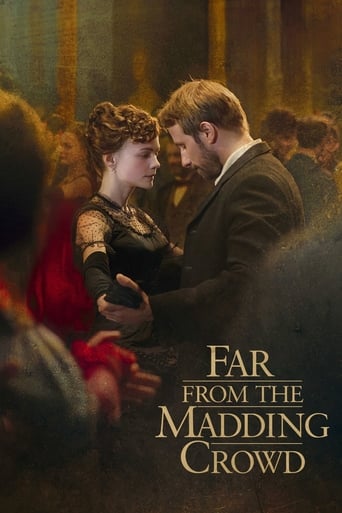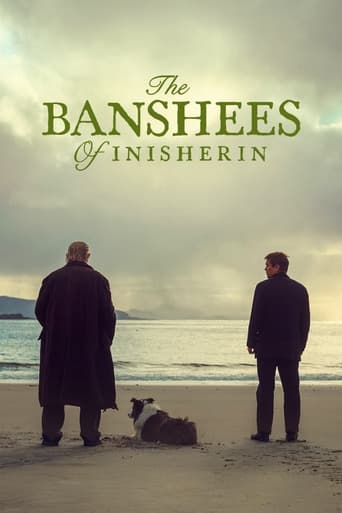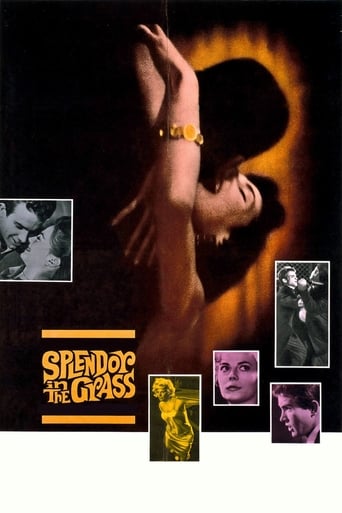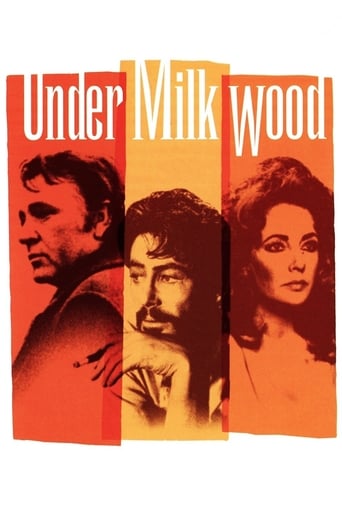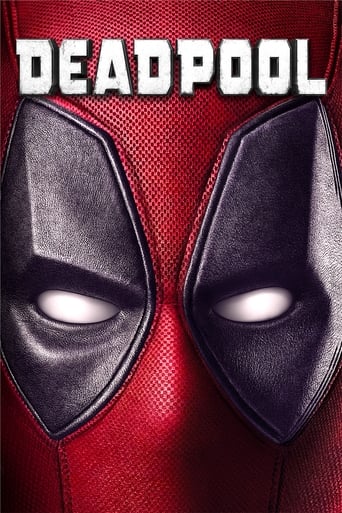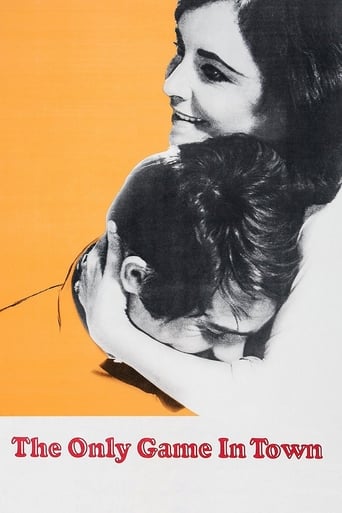


The Only Game in Town
Fran walks into a piano bar for pizza. She comes back home with Joe, the piano player. Joe plans on winning $5,000 and leave Las Vegas. Fran waits for something else. Meanwhile, he moves in with her.
-
- Cast:
- Warren Beatty , Elizabeth Taylor , Charles Braswell , Olga Valéry , Hank Henry


Reviews
This is a tender, generous movie that likes its characters and presents them as real people, full of flaws and strengths.
This is a coming of age storyline that you've seen in one form or another for decades. It takes a truly unique voice to make yet another one worth watching.
It's a feast for the eyes. But what really makes this dramedy work is the acting.
An old-fashioned movie made with new-fashioned finesse.
Seeing "The Only Game In Town" for the first time forty odd years after it was made is a very special treat for anyone who loves film and film history. This was going to be George Steven's last film. A great director, a pioneer. Here he's directing Elizabeth Taylor for the third time, after "A Place In The Sun" and "Giant". That alone makes "The Only Game In Town" a collector's piece. Elizabeth Taylor clearly trusted George Stevens completely and for good reason. She is spectacular. Every close up is like a personal, private experience. Warren Beatty is perfect here and he turned down "Butch Cassidy And The Sundance Kid" to work with George Stevens. Good for him. A delicious treat.
Based on play by Frank D. Gilroy that ran only 16 performances on Broadway, "The Only Game in Town" was adapted for the screen by Gilroy and misused the talents of two stars and a director with five Academy Awards between them. Evidently, the play and Gilroy's services to write the adaptation were purchased before opening night, otherwise Elizabeth Taylor, Warren Beatty, and George Stevens would have been more effectively employed on other projects. Fran Walker, an aging Vegas showgirl, whose stylish apartment and flashy wardrobe belie any financial struggle, becomes involved with Joe Grady, a bar pianist, who subsists on tips and gambling. The pair get to know each other over the course of the two-hour running time, Fran's married paramour appears and disappears, the bar owner has problems with the undependable Grady. In other words, not much happens, and, considering the paucity of dialog, the play's brief life on Broadway is understandable. In 1970, Elizabeth Taylor was probably the most famous woman in the world, and her image, bearing, and demeanor are definitely not working class. In a part originated by Tammy Grimes and more suited to Shirley Maclaine, Taylor tries her best, but she lacks the physical attributes of a dancer and, at this point in her career, is definitely a grande dame. However, not all the blame falls on Taylor. While she is obviously miscast, hairstylists Alexandre and Claudie Ettori bear responsibility for the puffy hair styles and wigs that overwhelm Taylor and detract from her legendary beauty. When Taylor's coiffures are not demanding attention, Mia Fonssagrives's and Vicki Tiel's unflattering costumes elicit giggles and gasps, especially an outlandish yellow mini-skirted outfit with a pillbox hat that parodies earlier fashions successfully worn by Jackie Kennedy and Audrey Hepburn. If Razzies had been awarded for costumes, Fonssagrives and Tiel would have taken them home.Fortunately, Alexandre and Fonssagrives kept their hands off Warren Beatty, and he does fairly well, although neither he nor Taylor are convincing as lovers. Equally unconvincing is the supposed Las Vegas location; filmed in Paris, the obvious rear projection to fake Nevada settings is distracting at best. "The Only Game in Town" was a disappointing finale to the career of director George Stevens, who retired after the film's failure. More than four decades after its release, the movie is difficult to sit through, despite the efforts of Taylor and Beatty to inject some life into a moribund story. Only die-hard fans of the two stars and students of George Stevens's career will likely find much of value.
This movie has a nice feel to it. It takes you back to an era when women looked like women, curvy and wearing dresses as Elizabeth Taylor does in this picture. Warren Beatty is most handsome and is totally smitten with Taylor's character, which makes this movie seem like a fairy tale since men like him usually go for the model thin women. After viewing this movie late at night, I realized I truly enjoyed it, and wouldn't mind having a video of it. Although, they may seem unrealistic, these are the kind if movies that keep hope alive for true love.
So full of holes in plot and characterization that you must wonder how this was considered a finished product - for stage or screen.Taylor, who is neither built like a chorine nor moves like one, becomes involved with a boyish Beatty, who, according to the story, is two years older than she. (Even the makeup department had their problems with this one.) Afraid to commit herself emotionally because she's seen too much of the sordid sides of life and love, she nevertheless ends up committing herself totally to a compulsive gambler. That he has undergone some type of catharsis and will gamble no more is something she is ready to believe, but, I fear, the audience is not - especially since he has just gambled away his long-sought ticket out of Las Vegas. What she has to offer him (or any man) in the way of understanding, companionship, support and stability is very much open to question. Her own ticket out of Las Vegas, in the person of a married boyfriend who has-against all expectations-divorced his wife in order to marry her, is rejected for an uncertain future as a compulsive gambler's woman. Why? Unless you are prepared to blindly accept the catch-all "because she loves him," you won't find the answer in this picture. Speaking of fantasy, although she proudly insists that she has never taken money from any man, she lives in a beautifully-furnished apartment and has an extensive, very stylish wardrobe - notwithstanding her pointing out (for our benefit, I suppose) that her jewelry is not costly and her furs are not real. Is she lying about her source of income? If so, it is inconsistent with a character who is presented as being emotionally honest, however confused she might be. If her claim is to be taken literally, how can she manage such a lifestyle on a chorus girl's salary?There is lots more that doesn't ring true in a picture that fails to build, fails to involve the viewer, and ultimately falls flat.

